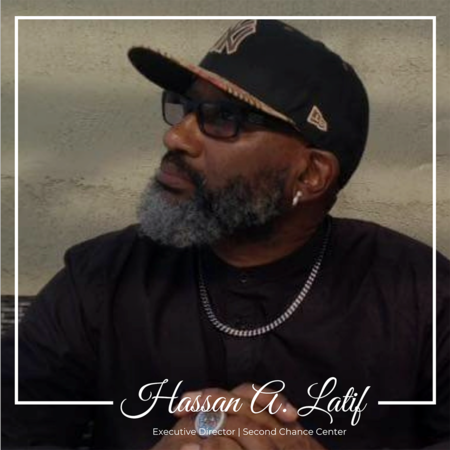Note: At CDHS, Black History Month is a reminder of our ongoing commitment to prioritize people, employees, clients and our collective uniqueness. Throughout February, we are sharing the voices of four local African-American leaders who exemplify excellence. Every day, these individuals positively contribute to our nation's history through their individual commitment of accelerating the journey towards improved lives and healthier communities.
By Hassan A. Latif
It is an honor to be recognized in this way during Black History Month. This opportunity represents a recognition of those I serve with as executive director of Second Chance Center, as well as those we serve. These are people who were counted out or seen as being of no account. Those whose visions were so clouded by the realities that they endured that they could barely imagine the true possibilities of what could be.
After surviving 18 years of incarceration in Colorado prisons, I returned to a world which had changed dramatically, and my vision of what I might be able to do was stunted at best. Before my release, I gathered together men I cared about and said, "I'm not gonna make you a bunch of promises. Not gonna pay Grandma's light bill, pay for baby's diapers, not sending y'all a bunch of money orders and I'm definitely not taking collect calls. However, what I will promise you is that I won't be the reason anyone says no to you." That seemed a pretty big umbrella to me, covering a lot of what my walk could be.
Founding Second Chance Center after six years home has led to being a part of the passing of landscape-altering criminal justice legislation; a seat on some impactful boards (Colorado Criminal Justice Reform Coalition and the Governor's Executive Clemency Advisory Board to name a couple); building the first Permanent Supportive Housing development in Aurora with a team of dedicated and impassioned community activists and advocates, supported and inspired in all these efforts by an internal Second Chance Center team that now numbers 29 (a long way from just me in my "mobile unit"), which happens to include five black men I walked prison yards with. So, not only has that one promise been kept, additionally I (and those I'm blessed to do this work with) have been blessed to be the reason some people say YES.
I am representative of a people who have been blessed with a second chance — to leave a mark instead of just scars.
